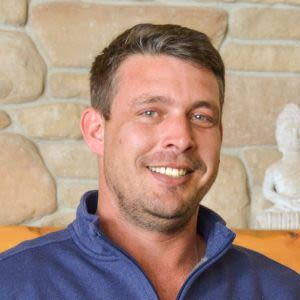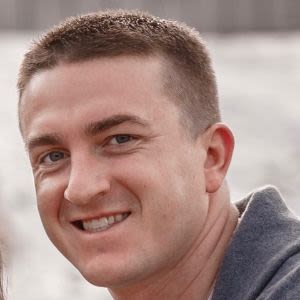






Spirit Mountain Recovery
Verified Center
This provider's information has been quality-checked by Recovery.com's Research Team for accuracy and completeness, including center verification through appropriate third-party organizations.
Treatment Focus
This center treats substance use disorders and co-occurring mental health conditions. Your treatment plan addresses each condition at once with personalized, compassionate care for comprehensive healing.
Primary Level of Care
Offering intensive care with 24/7 monitoring, residential treatment is typically 30 days and can cover multiple levels of care. Length can range from 14 to 90 days typically.
Treatment Focus
This center treats substance use disorders and co-occurring mental health conditions. Your treatment plan addresses each condition at once with personalized, compassionate care for comprehensive healing.
Primary Level of Care
Offering intensive care with 24/7 monitoring, residential treatment is typically 30 days and can cover multiple levels of care. Length can range from 14 to 90 days typically.
Provider's Policy
At Spirit Mountain Recovery, we want to make it easy for you to get addiction treatment. Our goal is to help you figure out the financial side of rehab now, so you don’t have to worry about it later when you’re focusing on recovery. Other In-Network Insurance First Health Network
Spirit Mountain Recovery
Spirit Mountain Recovery
About Spirit Mountain Recovery
Spirit Mountain Recovery offers support in a uniquely compassionate and non-judgmental way. They focus on the very latest evidenced-based clinical therapies and other outdoor experiential recovery regimens. These include equine therapy, hiking, biking, fishing, camping, swimming, paddle boarding, golf, skiing, pickleball, basketball, a CrossFit gym, meditation, and yoga. Spirit Mountain offers 12-Step and non-12-Step treatment options in addition to evidence-based therapies like cognitive behavioral therapy and individual counseling. At Spirit Mountain Recovery, clients are more than just a number. They truly believe in each client’s individual ability to find recovery, no matter what.
A Healing Mountain Retreat
Spirit Mountain’s stunning location is about an hour and a half north of Salt Lake City, Utah. Resting in the Wasatch Mountains, their substance use treatment facility offers an escape from the chaos of everyday life. Spirit Mountain treats clients from around the country, helping them find personalized solutions to addiction. Through their integrated experiential and evidence-based programming, clients can find their individual path to long-term, sustainable recovery. Spirit Mountain’s staff helps make the experience even more rewarding and impactful. Most of their staff members have worked through addiction themselves and are since recovered, now seeking to provide the help they once needed. Therapy dog Chip makes Spirit Mountain’s Utah home a space of even greater happiness and contentment.
Adventure With Like-Minded Men
Spirit Mountain Recovery seeks to help make clients’ recovery experience as fun as possible. They go on adventure outings regularly, taking full advantage of their mountain location and the natural resources surrounding them. Hikes, swims, river excursions, and fishing are just a few of Spirit Mountain’s available outdoor activities–there’s truly something for everyone to enjoy. The gender-specific program at Spirit Mountain fosters deeper connections between peers, providing the lasting support and comradery clients need to find lasting recovery.
Rest And Recovery At Spirit Mountain
One of the most enjoyable and unique aspects at Spirit Mountain Recovery is their immersion in nature. Spirit Mountain is set apart from the outside world, allowing for a complete focus on clients, their recovery, and confronting the challenges of their past. Flexible technology policies and an executive program keep clients connected to what matters, while still prioritizing their health and recovery. Adventure therapies help unlock the connection between addiction and its causes, enabling clients to truly begin to heal–all with mountain views, amazing cooking, and memorable recreation steps away.

Highlights from the Center
Highlights
These highlights are provided by and paid for by the center.
Joint Commission Accredited
Therapeutic Location
Holistic Approach
Family Owned & Operated
Center Overview
Treatment Focus
This center treats substance use disorders and co-occurring mental health conditions. Your treatment plan addresses each condition at once with personalized, compassionate care for comprehensive healing.
Joint Commission Accredited
The Joint Commission accreditation is a voluntary, objective process that evaluates and accredits healthcare organizations (like treatment centers) based on performance standards designed to improve quality and safety for patients. To be accredited means the treatment center has been found to meet the Commission's standards for quality and safety in patient care.
Insurance Accepted
Cash Pay Rates
Estimated Cash Pay Rate
Center pricing can vary based on program and length of stay. Contact the center for more information. Recovery.com strives for price transparency so you can make an informed decision.
Luxury rehab centers offer a unique blend of luxurious amenities and high-quality treatment. From private suites to gourmet dining, personal trainers to spa treatments, these facilities provide a high level of comfort and discretion.

Meet Your Care Team

Chris Farni
President, Co-Founder
BA, MBA

Matthew Farni
Lead Peer Support Specialist, Co-Founder
CPSS

Brenda Engeler
Therapist
MSW, LCSW, C-DBT

Seth Hodges
Director of Operations
BS

Adam Johnson
Shift Leader, Peer Support

Ryan Egger
Shift Leader, Peer Support
CPSS

Brett Gleiche
Shift Leader, Peer Support
BS, CPSS

Darshonna Lieberman
National Outreach Director

Chip
Peer Support
CSA




Levels of Care








Your Care Options
Specializations
Alcohol
Using alcohol as a coping mechanism, or drinking excessively throughout the week, signals an alcohol use disorder.
Bipolar
This mental health condition is characterized by extreme mood swings between depression, mania, and remission.
Co-Occurring Disorders
A person with multiple mental health diagnoses, such as addiction and depression, has co-occurring disorders also called dual diagnosis.
Drug Addiction
Drug addiction is the excessive and repetitive use of substances, despite harmful consequences to a person's life, health, and relationships.
Who We Treat
Older Adults
Addiction and mental health treatment caters to adults 55+ and the age-specific challenges that can come with recovery, wellness, and overall happiness.
Executives
Executive treatment programs typically directly support the needs of people who manage businesses and may provide flexible schedules and office space to allow work during treatment.
Midlife Adults
For adults ages 40+, treatment shifts to focus on the unique challenges, blocks, and risk factors of their age group, and unites peers in a similar community.
Professionals
Busy, high-ranking professionals get the personalized treatment they need with greater accommodations for work, privacy, and outside communication.
Approaches
Evidence-Based
A combination of scientifically rooted therapies and treatments make up evidence-based care, defined by their measured and proven results.
Family Involvement
Providers involve family in the treatment of their loved one through family therapy, visits, or both–because addiction is a family disease.
Holistic
A non-medicinal, wellness-focused approach that aims to align the mind, body, and spirit for deep and lasting healing.
Individual Treatment
Individual care meets the needs of each patient, using personalized treatment to provide them the most relevant care and greatest chance of success.
Non 12 Step
Non-12-Step philosophies veer from the spiritual focus of the 12-Steps and instead treat the disease of addiction with holistic or secular modalities.
Therapies
1-on-1 Counseling
Patient and therapist meet 1-on-1 to work through difficult emotions and behavioral challenges in a personal, private setting.
Play Therapy
This approach is commonly used with children. It incorporates elements of play and self-expression, like boardgames, finger painting, dolls, and blocks.
Rational Emotive Behavior Therapy
A type of cognitive therapy that identifies negative self-defeating thoughts and behaviors, rewriting beliefs to be positive, empowering, and present.
Mindfulness Therapy
This ancient practice can be mental, emotional, and even spiritual. In meditation, you focus your attention on the present moment without judgement.
Adventure Therapy
This experiential approach uses the physical and emotional challenges of outdoor activities as tools for personal growth.
Attachment-Based Family Therapy
ABFT is a trauma-focused therapy that teaches you to form healthy relationships by rebuilding trust and healing attachment issues formed in childhood.
Animal Therapy
Animals can inspire trust and self-worth. In this experiential therapy, guided interactions are used to improve social skills and emotion regulation.
Aromatherapy
Inhaling or topically applying essential oils can help relieve stress, soothe pains, and relieve emotional distress.
Conditions We Treat
Post Traumatic Stress Disorder
PTSD is a long-term mental health issue caused by a disturbing event or events. Symptoms include anxiety, dissociation, flashbacks, and intrusive thoughts.
Trauma
Some traumatic events are so disturbing that they cause long-term mental health problems. Those ongoing issues can also be referred to as "trauma."
Substances We Treat
Alcohol
Using alcohol as a coping mechanism, or drinking excessively throughout the week, signals an alcohol use disorder.
Benzodiazepines
Benzodiazepines are prescribed to treat anxiety and sleep issues. They are highly habit forming, and their abuse can cause mood changes and poor judgement.
Chronic Relapse
Consistent relapse occurs repeatedly, after partial recovery from addiction. This condition requires long-term treatment.
Co-Occurring Disorders
A person with multiple mental health diagnoses, such as addiction and depression, has co-occurring disorders also called dual diagnosis.
Cocaine
Cocaine is a stimulant with euphoric effects. Agitation, muscle ticks, psychosis, and heart issues are common symptoms of cocaine abuse.
Drug Addiction
Drug addiction is the excessive and repetitive use of substances, despite harmful consequences to a person's life, health, and relationships.
Ecstasy
Ecstasy is a stimulant that causes intense euphoria and heightened awareness. Abuse of this drug can trigger depression, insomnia, and memory problems.
Heroin
Heroin is a highly addictive and illegal opioid. It can cause insomnia, collapsed veins, heart issues, and additional mental health issues.
Languages
Aftercare
Care Designed for Your Needs
Personal Amenities
Amenities
Special Considerations
Executive Program
Addiction and mental health treatment for executives typically involves high discretion, greater technology access, and more private, 1-on-1 care.
Flexible technology policies
Centers with flexible technology policies allow professionals to stay in touch with work and give patients a greater sense of connection and normalcy.
Gender-specific groups
Patients in gender-specific groups gain the opportunity to discuss challenges unique to their gender in a comfortable, safe setting conducive to healing.
Activities
Yoga
Yoga is both a physical and spiritual practice. It includes a flow of movement, breathing techniques, and meditation.
Off-Site Activities
Off-Site Amenities
What people are saying
Treatment
5.0
Accommodations
5.0
Food & Nutrition
4.9
Value
5.0
Dina Amico
Treatment in 2022 • (60 days) • Reviewed 08/10/22
Loved One of a Former Client
•Il
tami
Reviewed 06/18/21
Review from Rehabs.com
Brett
Reviewed 02/05/21
Review from Rehabs.com
Michelle
Reviewed 06/06/22
Referring Professional
•CEO Detox Facility
Ryan
Reviewed 05/14/20
Review from Rehabs.com






